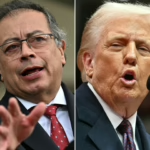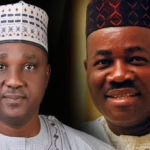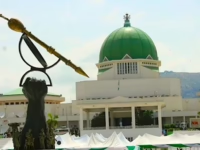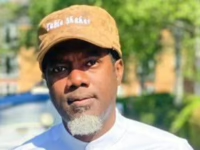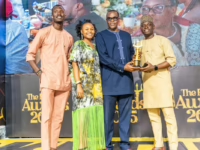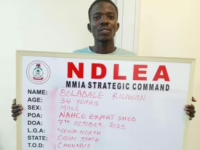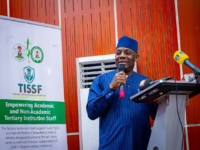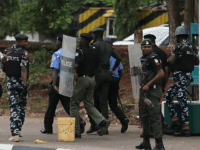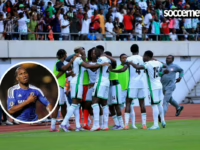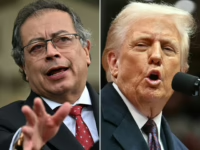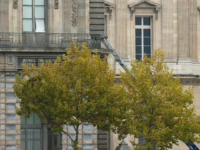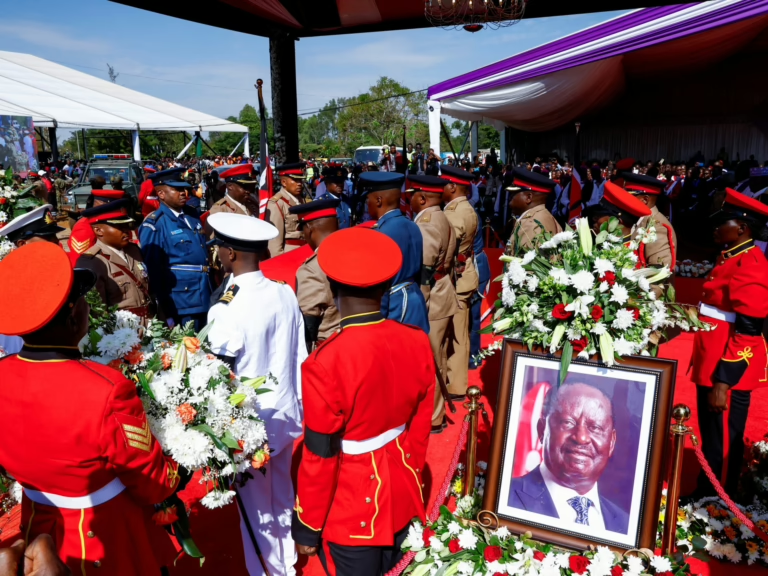The concluding rites come after several days marked by memorial gatherings that tragically resulted in five fatalities and numerous injuries due to crowd surges.
Published On 19 Oct 2025
The nation of Kenya bids a heartfelt goodbye to the revered opposition figure Raila Odinga, following a series of memorial events in Nairobi that were marred by tragic crowd incidents resulting in multiple casualties.
Odinga, a stalwart advocate for democracy and former prime minister from 2008 to 2013, is being laid to rest today at his ancestral home in Bondo, located in western Kenya.
The burial ceremony, held privately, will incorporate both full military honors and customary cultural rituals, succeeding a funeral mass conducted earlier at a local university, as reported by Kenya’s The Star.
Thousands of citizens alongside prominent leaders from across the African continent gathered to pay their respects to a man widely regarded as a devoted pan-Africanist.
Among the attendees were Kenya’s current President William Ruto, who praised Odinga as a “bridge-builder,” former President Uhuru Kenyatta, and Nigeria’s ex-President Olusegun Obasanjo.
“Raila was not only a cherished leader within Kenya but also held in high esteem throughout Africa and beyond,” remarked Al Jazeera correspondent Catherine Soi from the burial site in Bondo.
“The people here are gathered to honor his immense sacrifices for the nation.”
Memorial Events Marked by Chaos
At 80 years old, Odinga passed away due to an apparent heart attack while receiving medical care in southern India on Wednesday. His remains were welcomed by throngs of mourners in Nairobi the following day.
Over the course of three days, four public viewings attracted large crowds, unfortunately resulting in five deaths and hundreds of injuries caused by stampedes.
According to Soi, tensions escalated before the burial as attendees attempted to push forward toward the ceremony location, but security forces swiftly managed to restore order.
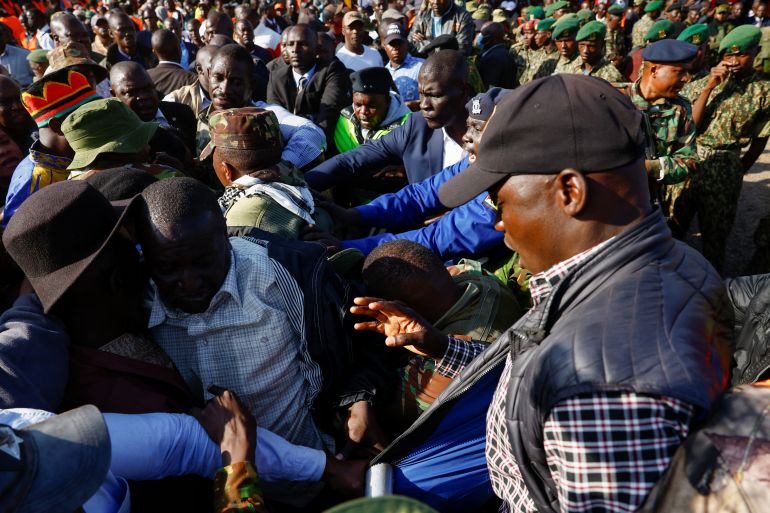
Known affectionately as “Baba,” meaning “father” in Swahili, Odinga was arguably the most influential political leader of his era in Kenya.
While primarily recognized as a persistent opposition figure, he served as prime minister from 2008 to 2013 and forged significant political alliances, including agreements with former President Kenyatta in 2018 and President Ruto in 2024, reflecting his dynamic political journey.
Despite five unsuccessful bids for the presidency, Odinga was instrumental in Kenya’s transition to multiparty democracy during the 1990s and is credited with spearheading the adoption of the acclaimed 2010 constitution.
President Ruto acknowledged on Friday that Odinga played a crucial role in stabilizing the nation following their political accord earlier this year, which came after months of youth-led protests that included the burning of parliamentary buildings.
Erastus Mwencha, former Deputy Chairperson of the African Union, emphasized Odinga’s continental impact.
“He was a key figure in what can be described as Africa’s second liberation,” Mwencha stated, noting that many African nations continue to strive for democratic governance.
With Odinga’s passing, the opposition faces a significant leadership void as Kenya approaches a potentially tense election cycle in 2027, with no clear successor emerging.


